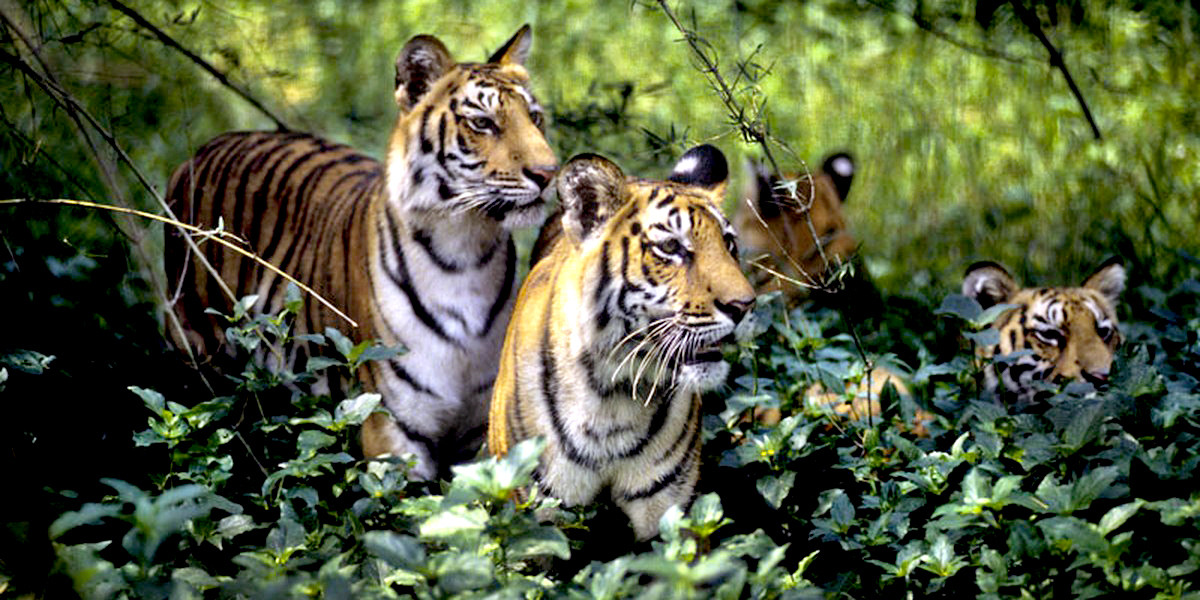
100 Years Ago 100,000 Tigers Roamed the World, Now There Are Fewer Than 4,000

Discovery Communications and World Wildlife Fund (WWF) announced Wednesday a partnership to conserve nearly 1 million acres of critical tiger habitat in India and Bhutan in hopes of doubling the world’s population of tigers by 2022.
[facebook https://www.facebook.com/EcoWatch/videos/1321900031156264/ expand=1]
The big cats are known to have once roamed much of Asia. Poaching and habitat loss slashed the 100,000 tigers that existed just 100 years ago by 96 percent and led to the extinction of four subspecies. As top predators, they are crucial to the ecosystems where they live. The current tiger population is estimated at under 4,000.
“Not on our watch will we let these beautiful animals disappear from the world,” David Zaslav, president and CEO of Discovery Communications, said when making the announcement.
The effort, dubbed Project C.A.T. (Conserving Acres for Tigers), will improve security measures for this protected habitat and maintain land corridors for better wildlife movement. To reduce conflict between tigers and people, the project will provide community education and engagement. More camera-trap installations will increase tiger monitoring and assessment.
Just recently, a camera trap in the Bumdeling Wildlife Sanctuary of Bhutan recorded a tiger in a forest where they have not been seen for almost two decades. “Tiger populations are rising for the first time in a century,” said Carter Roberts, president and CEO of WWF. “We need even more of a movement to accomplish these goals.”
WWF and Leonardo DiCaprio: Wild Tiger Populations Increase for First Time in 100 Years – EcoWatch https://t.co/Gab2UuIZBR
— BigCats.com (@bigcatscom) April 11, 2016
Discovery plans to use its worldwide media platforms to reach 3 billion cumulative viewers. The network has put into development a new documentary on tigers from the Academy Award nominated producers of Virunga. The documentary is set to air globally in 2018. Discovery will also produce public service announcements and in-program content tied to Project C.A.T.
In a Facebook Live presentation hosted on Dr. Jane Goodall’s Facebook page, John Hoffman, Discovery Channel’s EVP of documentaries and specials, said, “In our core, we understand that we are not apart from our fellow species. I think that at the end of the day we as humans will do the right thing.”
[facebook https://www.facebook.com/janegoodall/videos/10154658920572171/ expand=1]
Discovery and WWF will also provide ways for viewers and those who care about tigers to get involved. Discovery’s Saving Species page enables people to show their support for legislation to combat illegal wildlife trafficking, and WWF’s Adopt a Tiger program accepts donations in support of the organization’s work.
“The global movement to protect tigers just got 1 million acres stronger,” said Zaslav.

 233k
233k  41k
41k  Subscribe
Subscribe 